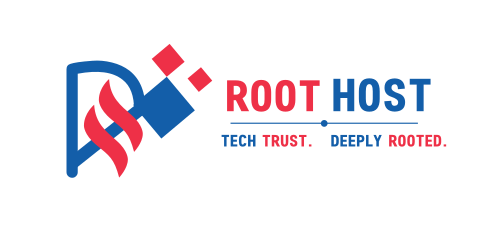In the fast-paced digital world of 2023, mastering Search Engine Optimization (SEO) is essential for anyone looking to boost their online presence. This article will guide you through the key strategies and techniques that can help you improve your website’s visibility and attract more visitors. From understanding the basics of SEO to exploring advanced tactics, we will cover everything you need to know to succeed in the competitive landscape of digital marketing.
Key Takeaways
- SEO is crucial for increasing your website’s visibility and attracting organic traffic.
- Creating high-quality, relevant content is key to ranking well on search engines.
- Optimizing for mobile devices is essential as more users access websites via smartphones.
- Building a strong backlink profile can enhance your site’s authority and credibility.
- Monitoring and adjusting your SEO strategies based on data is vital for ongoing success.
Understanding the Fundamentals of Search Engine Optimization (SEO)
The Role of SEO in Digital Marketing
So, SEO is like the secret sauce in digital marketing. It’s what makes your website pop up when someone Googles something relevant. Think of it as a way to get your website noticed without paying for ads. SEO helps drive organic traffic to your site, meaning people find you naturally. It’s a big deal because more visitors often mean more business.
How Search Engines Work
Search engines are like super-smart librarians. They crawl the internet, indexing pages so they can find stuff fast when someone searches. They use algorithms to decide which pages show up first. It’s not just about keywords but also about how user-friendly your site is. If your site loads quickly and is easy to navigate, you’re more likely to rank higher.
The Evolution of SEO Practices
SEO has changed a lot over the years. It used to be all about stuffing keywords into your site. Now, it’s more about quality content and making sure your site works well on mobile devices. Google’s algorithms have gotten smarter, focusing more on user experience and less on just keywords. Keeping up with these changes is key to staying visible online.
SEO isn’t just a trend; it’s a must-have strategy for anyone wanting to succeed online. It’s about making sure your site is seen by the right people at the right time. It’s a mix of art and science, and when done right, it can really boost your online presence.
On-Page SEO Techniques for 2023

Crafting High-Quality Content
Creating high-quality content is still the king when it comes to SEO. It’s not just about cramming in keywords anymore; it’s about providing something your audience finds useful and engaging. In 2023, search engines are getting smarter, so you gotta focus on:
- Comprehensive Content: Make sure your content is detailed and covers what the user is looking for.
- Keyword Research: Use tools to find the right keywords that are trending in your area.
- Natural Integration: Keywords should fit naturally in your text, not just thrown in.
- Freshness: Keep updating your content to make sure it’s still relevant.
Effective Keyword Optimization
Keywords are still a big deal, but the way you use them has changed. It’s not just about how often you use a keyword, but more about understanding what people are really searching for. Here’s what you should do:
- Semantic SEO: Use related keywords and synonyms to give a full answer to what users are searching for.
- Long-Tail Keywords: Go for longer, more specific keywords that match what people are actually typing in.
- User Intent: Make sure your content matches what people are looking for, whether it’s info, directions, or buying something.
Enhancing User Experience (UX)
User experience is super important for SEO in 2023. Google looks at how people interact with your site. Here’s what to focus on:
- Clear Navigation: Make it easy for people to find what they need on your site.
- Internal Linking: Use links within your site to guide users to more content, keeping them around longer.
- Engaging Design: A good-looking, easy-to-use site keeps people from leaving too soon.
In 2023, on-page SEO is all about making your site a great place for visitors. It’s not just about search engines; it’s about real people. Focus on giving them what they need, and the rankings will follow.
Mastering Off-Page SEO Strategies
Building a Strong Backlink Profile
Alright, so off-page SEO is like the part where you get other websites to vouch for you. Think of backlinks as your online references. The more quality sites link back to you, the more trustworthy you seem to search engines. But hey, it’s not just about collecting a bunch of links. You want links from reputable sites. It’s like getting a letter of recommendation from someone who actually knows what they’re talking about.
- Focus on quality over quantity when it comes to backlinks.
- Guest post on reputable sites to get your name out there.
- Keep an eye on your link profile, ensuring it’s clean and relevant.
Leveraging Social Media for SEO
Social media isn’t just for sharing cat memes. It’s a solid way to boost your SEO game. Sharing your content on platforms like Facebook, Twitter, or LinkedIn can drive traffic to your site. Plus, if people start sharing your stuff, that’s even better. It’s like free advertising.
- Share your content regularly on social media platforms.
- Engage with your audience to boost visibility.
- Use social media to build relationships with industry influencers.
Managing Online Reputation
Your online reputation is a big deal. What people say about you online can affect how search engines view your site. Keep tabs on reviews and mentions. Responding to feedback, both good and bad, shows that you’re active and care about your audience.
Keeping a good online reputation is like making sure your shoes are always clean before a big interview. It just makes you look better.
- Monitor reviews and mentions of your brand.
- Address negative feedback promptly and professionally.
- Highlight positive reviews and testimonials on your site.
Technical SEO: Ensuring Your Website’s Health
Optimizing Website Structure and Navigation
Getting your website’s structure right is like building a solid house. You want everything in the right place so visitors can find what they need without getting lost. A well-organized site helps search engines crawl your pages more effectively. Here’s how you can do it:
- Use a clear hierarchy: Start with broad categories and break them down into subcategories.
- Include a sitemap: This helps search engines understand your site’s structure.
- Keep URLs simple and descriptive: Make sure they reflect the content of the page.
Implementing Schema Markup
Schema markup is like giving search engines a cheat sheet to your content. It’s a bit of code that helps them understand what your content is about. Here’s why you should use it:
- Improves search visibility: It can help your site appear in rich snippets.
- Enhances click-through rates: Users get more detailed info right from the search results.
- Supports voice search: As more people use voice assistants, schema helps your content get picked up.
Improving Site Speed and Core Web Vitals
Nobody likes waiting for a slow website to load. If your site drags, visitors might just bounce. Here’s how to keep things speedy:
- Compress images: Large files slow everything down.
- Use a content delivery network (CDN): This helps distribute your content faster.
- Minimize JavaScript and CSS: Less code means quicker load times.
A fast, well-structured site not only keeps visitors happy but also gets a thumbs up from search engines. Remember, technical SEO is the groundwork for all your other SEO efforts. Without it, everything else might just fall flat.
Local SEO: Capturing the Local Market
Optimizing Google My Business
Getting your Google My Business (GMB) profile just right is super important if you want to show up in local searches. Make sure your business name, address, and phone number (NAP) are correct and match what’s on your website. Pick the right categories so Google knows what you do. And hey, don’t forget to add some great photos of your place and what you offer. Also, keep your profile fresh by posting updates or special offers now and then.
Encouraging and Managing Online Reviews
Online reviews can make or break you. Encourage happy customers to leave reviews, but play it fair—no bribing or fake stuff. Keep an eye on what people are saying about you across different platforms like Yelp or Facebook, not just Google. Respond to reviews, both good and bad, to show you care about your customers. If something goes wrong, try to fix it. It shows you’re committed to making things right.
Utilizing Local Keywords
Using the right local keywords helps you connect with people in your area. Think about how folks search for your services locally. You might want to include the name of your city or neighborhood in your content. Also, create content that speaks to local events or news, which can help you rank better in local searches. Remember, it’s all about making your business easy to find for the people nearby.
Local SEO is all about being there when your community needs you. It’s not just about showing up in search results but about building trust with your local audience.
Content Strategy for SEO Success
Balancing Content Quality and Quantity
So, back in the day, cranking out loads of content was the way to go. But now? It’s all about quality over quantity. You want your stuff to be top-notch, not just a bunch of filler. Think of it like this: it’s better to have one really great article than ten "meh" ones. Keep your content fresh and make sure it answers what folks are actually searching for.
- Focus on quality: Make sure your content is informative and helpful.
- Regular audits: Go back and check your old content. Update it or toss it if it’s no longer useful.
- Understand user intent: Know why people are searching and give them what they need.
Incorporating Video and Visual Content
Okay, so everyone loves videos and cool graphics. They’re not just fun to look at; they can boost your SEO too. When you use videos or images, make sure they’re optimized so search engines can find them easily.
- Video SEO: Use good titles, descriptions, and tags for your videos.
- YouTube SEO: YouTube can be a goldmine for traffic. Make your videos easy to find there.
- Visuals: Use infographics and images to break up text and keep things interesting.
Harnessing User-Generated Content
User-generated content is like free gold. It’s stuff your audience creates, and it can really help your SEO. Think reviews, comments, and even social media posts. Encourage your audience to share their thoughts and experiences.
- Encourage reviews: Ask customers to leave reviews and feedback.
- Social media: Engage with your audience and share their content.
- Community building: Create spaces where users can interact and contribute.
The Impact of AI on SEO
Utilizing AI-Powered SEO Tools
AI is shaking up how we do SEO. It’s like having a super-smart buddy who helps you out with stuff. AI tools dig through tons of data to find the best keywords, so you don’t have to guess anymore. These tools also keep an eye on how your site is doing, giving you real-time updates. AI tools are now a must-have for anyone serious about SEO.
- Keyword Research: AI tools scan heaps of data to pick out the best keywords.
- Content Creation: They help create content that sounds like a real person wrote it.
- Competitor Analysis: AI checks out the competition, showing you where you can do better.
Creating AI-Generated Content
Writing content takes forever, right? Well, AI can help speed that up. It can make outlines, summaries, and even suggest tweaks to make your stuff better. Sure, you still need a human touch, but AI’s a great sidekick.
- Content Outlines: AI helps you organize your thoughts.
- Content Summaries: It can shrink long articles into bite-sized pieces.
- Content Enhancement: AI gives tips to jazz up your writing.
Understanding Predictive SEO
Predictive SEO is like having a crystal ball for what people will search for next. AI looks at trends and patterns to help you get ahead of the game. It’s all about staying one step ahead and adjusting your strategy based on what might happen next.
AI is changing the SEO game, making it smarter and more efficient. It’s like having an extra set of hands that never sleep, always working to boost your online presence.
Emerging SEO Trends to Watch

The Rise of Featured Snippets
So, you’ve probably noticed those little boxes at the top of Google search results, right? They’re called featured snippets. In 2023, these are becoming a big deal because they give users quick answers without even clicking a link. If you want your content to show up there, make sure you’re answering common questions clearly and concisely. Being the source of a featured snippet can drive a lot of traffic to your site.
Understanding E-A-T and YMYL
E-A-T stands for Expertise, Authoritativeness, and Trustworthiness. It’s what Google uses to evaluate the quality of a page. YMYL pages (Your Money or Your Life) are those that can impact a person’s happiness, health, or wealth. For these pages, Google wants to see high E-A-T. So, if you’re writing about finance, health, or legal stuff, make sure your content is solid and trustworthy.
Privacy Concerns in SEO
With all the talk about online privacy, SEO is changing. New privacy laws mean you can’t track users like you used to. This affects how you collect data and analyze traffic. Cookieless tracking is becoming a thing, and you’ll need to find new ways to understand your audience. Balancing personalization with privacy is tricky, but it’s the way forward.
Measuring and Monitoring SEO Performance

Using SEO Analytics Tools
Alright, let’s talk about how you keep tabs on your SEO game. You gotta have the right tools, like your basic SEO analytics tools. These things help you see what’s what on your site. Things like traffic, keywords, and conversions. It’s like having a map when you’re lost.
- Traffic Analysis: Keep an eye on how many folks are visiting your site. Watch for any weird dips or spikes.
- Keyword Performance: Check which words are bringing people in. You want the ones that get clicks.
- Conversion Tracking: Figure out if those visits turn into sales, sign-ups, or whatever you’re aiming for.
Identifying Key Performance Indicators (KPIs)
KPIs are your best friends here. They tell you if you’re winning or losing. You gotta set clear goals like getting more traffic or higher conversion rates.
- Organic Traffic Growth: More people finding you naturally? That’s a win.
- Keyword Rankings: Watch where you stand in search results. Going up? Good job.
- Conversion Rate: Are visitors doing what you want? Buying stuff, signing up, whatever.
Adjusting Strategies Based on Data
Data’s not just numbers; it’s your guide. You gotta look at it and tweak things. If something’s not working, change it up.
- Check your KPIs regularly.
- See what’s working and what’s not.
- Make changes where you need to, like updating content or fixing broken links.
Keeping track of your SEO efforts isn’t just about numbers. It’s about understanding what those numbers mean and using them to make your site better. You gotta keep at it, always looking for ways to improve. That’s how you stay ahead.
Preparing for the Future of SEO

Adapting to AI and Machine Learning
AI is everywhere these days, and it’s not going anywhere. SEO is no exception. We’re talking AI tools that help you figure out what people want before they even know it themselves. It’s like having a crystal ball for your website. So, get comfy with AI. Try out some tools that do the heavy lifting for you, like analyzing data and suggesting keywords.
Focusing on Mobile-First Indexing
Everyone’s glued to their phones, right? Google knows it too. They’ve gone all-in on mobile-first indexing. Your site better look good on a phone or you’re toast. Check that your pages load fast and look sharp on those tiny screens. It’s not just about being mobile-friendly; it’s about being mobile-awesome.
Prioritizing User Experience Enhancements
User experience, or UX, is like the secret sauce. If people enjoy visiting your site, they’re gonna stick around. Work on those Core Web Vitals. Make sure your site loads quick, doesn’t jump around when it finally does load, and is easy to navigate. When users are happy, search engines notice. It’s a win-win.
Final Thoughts on SEO Mastery in 2023
In conclusion, mastering SEO in 2023 is essential for anyone looking to succeed online. As we’ve discussed, effective SEO involves understanding your audience, creating valuable content, and keeping up with the latest trends. By focusing on both on-page and off-page strategies, you can improve your website’s visibility and attract more visitors. Remember, SEO is not a one-time task but an ongoing process. Stay informed, adapt to changes, and continuously refine your approach. With dedication and the right strategies, you can achieve great results and stand out in the crowded digital landscape.
Frequently Asked Questions
What is SEO and why is it important?
SEO stands for Search Engine Optimization. It helps websites rank higher on search engines like Google, making them easier for people to find. This is important for getting more visitors to your site.
How can I improve my website’s SEO?
You can improve your SEO by creating high-quality content, using the right keywords, and making sure your site is easy to use and fast.
What are keywords and why do they matter?
Keywords are words or phrases that people type into search engines. They matter because using the right keywords can help your website show up in search results.
What is on-page SEO?
On-page SEO refers to optimizing the parts of your website that you control, like content, headings, and images, to help search engines understand your site better.
What is off-page SEO?
Off-page SEO includes actions taken outside your website, like getting backlinks from other sites and engaging with social media, to improve your site’s credibility.
How does mobile optimization affect SEO?
Mobile optimization ensures your website works well on smartphones and tablets. Since many people use mobile devices to browse the web, it’s crucial for good SEO.
What tools can I use to check my SEO performance?
You can use tools like Google Analytics, SEMrush, and Ahrefs to monitor your website’s SEO performance and see where you can improve.
What are some common SEO mistakes to avoid?
Common SEO mistakes include ignoring mobile users, using too many keywords, and not updating content regularly. Avoiding these can help improve your rankings.




